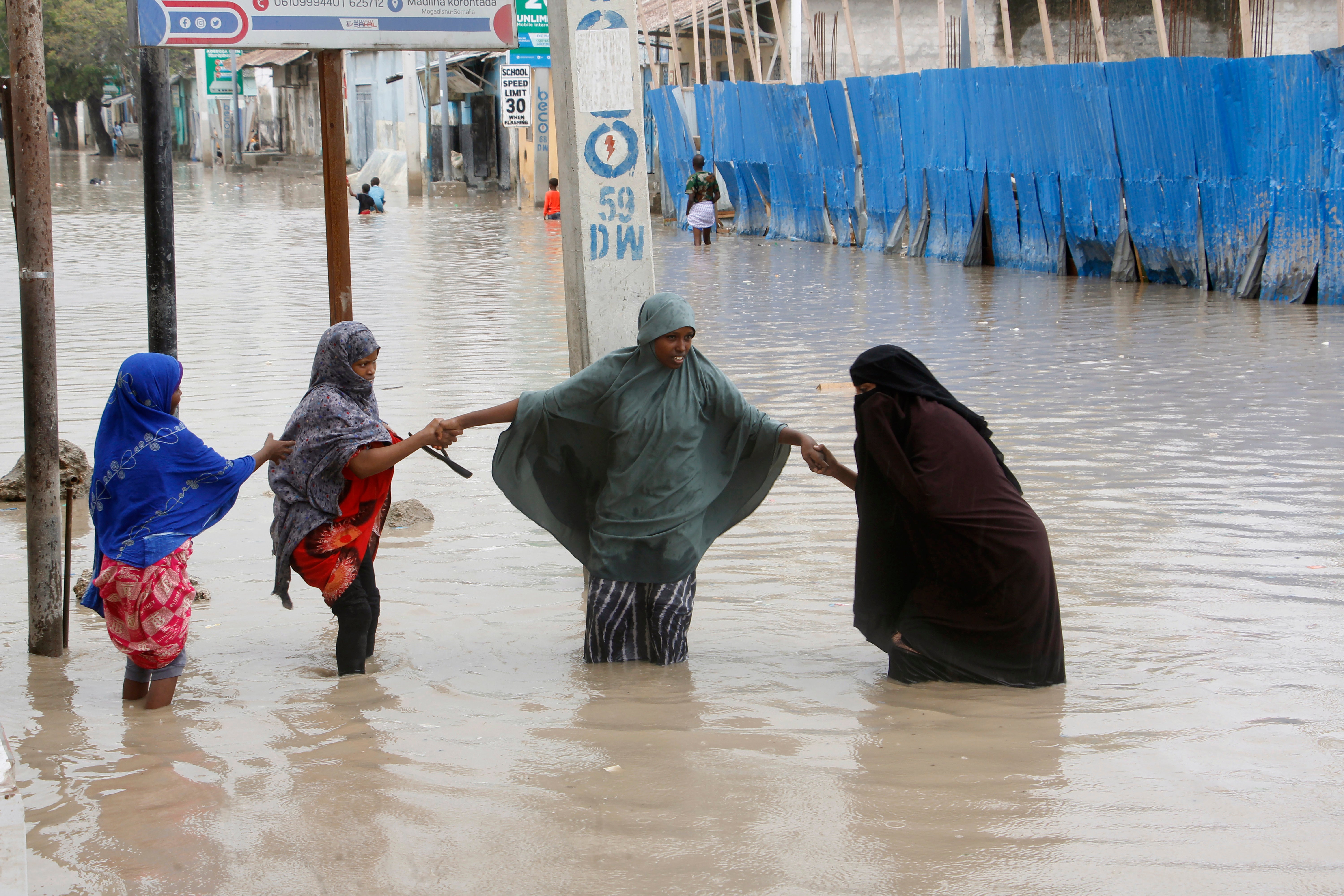It’s men who caused the climate crisis – but it’s women who will suffer the most
Women across the world are having their lives torn apart by the climate crisis – and the UK government is turning its back, writes co-leader of the Green Party Carla Denyer
International Women’s Day is an opportunity for us to reflect on the progress we’ve made towards a world where women can thrive, living our lives on equal terms with the men around us. In recent years, there’s been plenty to celebrate – from a huge win on abortion rights in Ireland to a new law in Colombia ending child marriage.
But for women across the world, a backlash against our rights has many feeling fearful. In Afghanistan, the Taliban have banned girls from going to school, and women from working, in an attempt to remove women from public life. And in America, the repeal of Roe v Wade has stripped women in some states of autonomy over their bodies.
These creeping attacks on women’s ability to live as we choose are taking place in the context of a broader backlash against progress – imperfect, but important progress – made in recent decades towards a safer, fairer and more equal world. Young men are being sucked into dark, misogynistic online worlds by the likes of Andrew Tate. Politicians and public figures are fanning the flames of racist hate. Meanwhile, grifters like Nigel Farage, whose party is funded by oil and gas companies and climate deniers to the tune of £2.3 million, are working to dismantle and reverse the progress we’ve made towards tackling the climate crisis.
Across the globe, this last development will do just as much damage to women’s lives as rising misogyny and attacks on bodily autonomy. We know that women are far more vulnerable to the ravages of the climate crisis: in many places, women are more likely to be responsible for securing food, water and fuel for their families; more likely to work in agriculture, and therefore have to work harder when drought and erratic rainfall leads to poor harvests; and more likely to live in poverty, making it harder to recover from disasters.

The figures are stark: 80 per cent of people displaced by the climate crisis are women. And when women are displaced from their homes, they are at greater risk of unemployment, child marriage, human trafficking, and gender-based violence.
Despite the disproportionate impact of the climate crisis on women, across the globe men dominate climate decision-making – filling more than two-thirds of climate decision-making roles. When women do take action in their communities to defend the natural environment they rely on, they often face gender-based violence as a result of their activism – from intimidation and harassment to sexual violence.
For women in countries across the world, the droughts, extreme weather and food shortages caused by the climate crisis are a daily reality. But here in the UK, there is a growing movement to convince people that these horrors aren’t happening, aren’t caused by fossil fuels – or that if they are, it’s none of our business.
A small group of extremely wealthy men are hell-bent on using their money and influence to derail this country’s progress towards lowering our emissions and building a fairer, greener economy – because they fear climate action will hinder their ability to make money.
Since 2019, 92 per cent of the funding for Nigel Farage’s Reform party has come from oil and gas interests, highly polluting industries, and climate science deniers – and they’ve spent much of that time spreading disinformation about net zero, pushing for the government to scrap vital action to tackle the climate crisis.
But we can’t afford to let them, because the choices we make now will have a direct impact on the 160 million women and girls at risk of being pushed into poverty by the climate crisis; the 240 million more who will be affected by food insecurity if we don’t curb the worst excesses of the crisis; or the 1.5 billion living in places which are highly exposed to droughts.
Across the world, women’s rights are under threat from a growing right-wing movement to strip us of our choices, whip up misogyny and hate, and block the action needed to keep women and girls across the world safe. We have a duty to stand up to them – and demand that our government do the right thing to secure a safe future for all of us.
Carla Denyer is a British politician who has served as co-leader of the Green Party of England and Wales alongside Adrian Ramsay since 2021 and as the Member of Parliament for Bristol Central since 2024
Join our commenting forum
Join thought-provoking conversations, follow other Independent readers and see their replies
Comments
Bookmark popover
Removed from bookmarks